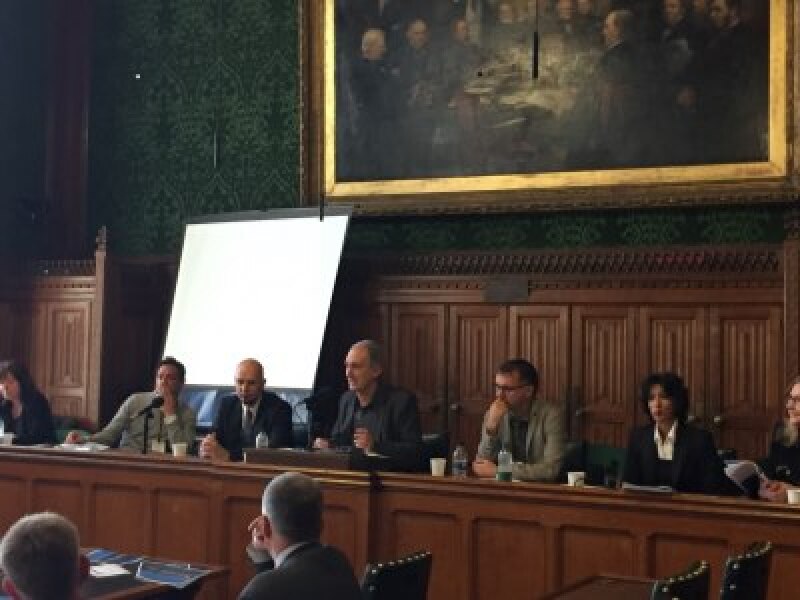
The report by Mike Weatherley MP (pictured right, centre) was the third (and final, since he will leave Parliament in 2015) he has prepared for David Cameron.
Despite being appointed to the (upaid) role of intellectual property adviser, each report has focused on copyright. That is not surprising, since it is an area of IP the former music industry executive knows very well. But has the insight he has gained as an industry insider made him too willing to defend industry practices from the challenges unleashed by the digital revolution?
In a piece Weatherley wrote last week for Conservative Party blog Conservative Home, the IP adviser talked about a recent visit he had paid to a university. While there, he had asked the students present how many had illegally downloaded music in the past month. Around 90% admitted they had.
Weatherley then asked how many of these people "thought that they were helping to contribute to the downfall of our creative industries" - a loaded question if ever there was one. One third of the students kept their hands raised.
Weatherley concluded from this experiment (which he acknowledges was not very scientific) that "(a) that third just didn't care about the consequences, and that (b) the other two-thirds hadn't thought through the consequences".
But this surely amounts to what academics would call a false dichotomy. There may be another explanation: some students may have thought that they were supporting the band and the industry that goes with it. They may have known that the money they subsequently spent on tickets to see the band live, or for a T shirt, or for the entire album that they bought after hearing one track, would contribute towards the upkeep of the creative industries.
Of course it is important to acknowledge the positive impact that IP has for developed economies, and the disruption that the internet has caused the creative industries (not least publishing). But it is seems worth acknowledging that the young people who cut their technological and creative teeth making mashups and parodying successful artists, or who can now access more forms of music than they could ever afford to buy, might yet be the next generation's world-leading artists.
Weatherly has agreed to an interview with Managing IP before he leaves office, so we look forward to discussing these questions with him.









